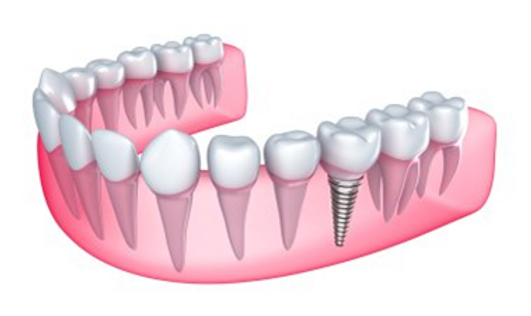Dental issues, especially missing teeth, can deeply affect daily life, leading to difficulties in eating, speaking, and self-esteem. The gaps left by missing teeth can also cause neighboring teeth to shift, further complicating oral health. Fortunately, advancements in dental care have introduced effective solutions such as dental implants, which provide a permanent and reliable option for tooth replacement.
Dr. Alisha Khan, Founder of the world-class Evershine Dental Clinic in Chembur, explains:
“Dental implants are artificial tooth roots made of titanium surgically placed into the jawbone. They provide a stable foundation for mounting replacement teeth or bridges, restoring the function and appearance of missing teeth. Implants are known for their durability and natural look, making them a popular choice for long-term tooth replacement solutions.”
While dental implants offer many benefits, some people may experience swelling a week or 2 after the procedure. This blog will guide you through what you can expect, how to recognize signs of infection, when swelling might signal a problem, and practical ways to alleviate it.
Is it normal to get swelling 2 weeks after dental implant?
It’s not uncommon to experience some swelling 2 weeks after dental implant as the body continues to heal and adjust to the new implant. Typically, post-dental implant swelling peaks within the first few days and gradually diminishes. However, if the swelling persists or worsens, it’s essential to monitor it closely. Dr. Alisha Khan, a renowned cosmetologist and dentist in Chembur, adds:
“Mild and slowly resolving swelling can still be part of the normal healing process, but any increase in swelling or pain during this period may need attention. Persistent swelling could be a sign of delayed healing. While it may not always indicate a serious problem, it’s crucial to rule out any complications related to the implant site.”

Have you noticed prolonged swelling after your dental implant? It’s essential to consult your dentist to ensure everything is healing correctly.
What are the signs of dental implant infection?
While some pain is normal post-surgery, ongoing or worsening pain around the implant site may indicate an infection.

Recognizing these signs early and consulting with a dental professional can help manage and treat the infection effectively, preserving both the implant and the patient’s oral health.
When should I worry about swelling after dental implant surgery?
Are you concerned about whether your swelling is a cause for alarm? Consult your dentist promptly to ensure proper healing and address any potential complications.

How to reduce swelling 2 weeks after dental implant?

Conclusion
If you experience prolonged or severe swelling, consulting your dentist is crucial for timely intervention and proper care.
Have you noticed any concerning symptoms after your dental implant procedure? Don’t hesitate to seek professional advice to ensure a smooth and successful recovery.
FAQ
How long does it take for implants to fully settle?
I have heard about the face swelling after dental implant. Does your face go back to normal after dental implants?
Does salt water help swollen gums?
Can dental implants fail, and what are the common reasons for failure?
Yes, dental implants can fail, though the success rate is generally high. Common reasons for implant failure include:
- improper placement
- insufficient bone density
- smoking
- poor oral hygiene
- development of infections such as peri-implantitis
It’s vital to follow your dentist’s care instructions and attend regular check-ups to monitor the health of your implants and surrounding tissues.
